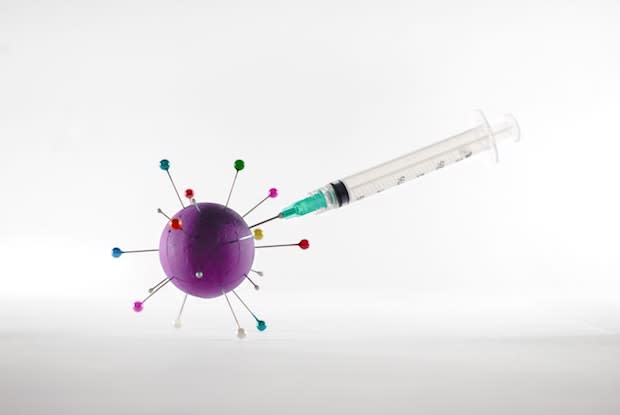Table of Contents
IV. Can I Use Leftover Antibiotics?
V. How Do I Dispose of Antibiotics?
Understanding Antibiotics
Since their discovery, antibiotics have saved the lives of millions of people across the world. Antibiotics allow people to fully recover from bacterial infections that may have previously been deadly. Bacteria (germs) are present basically everywhere in our environment and even within our bodies. The majority of these germs are harmless and do not cause problems when they interact with the body. [1]
In some cases, harmful bacteria enter the body and multiply at a rapid rate. The body’s immune system can usually fight off an infection that may occur after a bacterial invasion. White blood cells rush to the area of the infection to get rid of the invader. During this time, you may experience symptoms like headaches, fatigue, and rash. These symptoms are not a result of the infection, but of the immune system working overtime to rid your body of bad bacteria. Infection does not always lead to disease, but some infections can lead to cell damage. When cell damage occurs, the disease may set in, which can result in severe side effects. [2]
Many people may think antibiotics can be used for many diseases, but in many cases, antibiotics are over-prescribed or prescribed for the wrong reasons. The more frequently antibiotics are used, more strains of bacteria will become resistant to these medications. Antibiotics like amoxicillin, Levaquin (levofloxacin), and Retapamulin Cream are still needed to treat infections, but they must be used correctly. Read on to learn more about common misconceptions about antibiotics and the proper way to use these medications. [2]
Many people think that antibiotics are prescribed for any illness. This is a common misconception and may be dangerous if antibiotics are prescribed too frequently. There are several organisms that can lead to infection, including viruses and bacteria. Viruses are often qualified as seasonal illnesses, like the common cold or flu. Viral infections typically affect the upper respiratory tract, mostly the nose and throat. There are several types of cold and flu strains, so people get these illnesses once, if not a few times a year. Common symptoms of these illnesses include: These types of infections usually clear themselves up, but you may need to seek medical care if you have a fever for over five days or your fever goes above 101.3 F. These viruses are spread through hand-to-hand contact with an infected person. Anyone can contract a virus, but you are at an increased risk if you have a weakened immune system, smoke, or work around many people (school teacher, flight attendant, etc.). [3] These symptoms may lead someone to seek the help of a doctor and get a prescription for antibiotics. This will not help a virus. It must be understood that antibiotics cannot treat viral infections. Antibiotics can only kill bacterial infections. A person may experience bacterial infections if they experience a cut, burn, or bacterial invasion in the body. Common infections include strep throat, urinary tract infection, pneumonia, food poisoning, bacterial meningitis, and sepsis (blood infection). Each of these infections has its symptoms, so if you feel unwell, it is important to seek a doctor for the proper diagnosis and possible antibiotic prescription. [4] If you think you are experiencing a bacterial infection, your doctor will ask about your symptoms and determine if antibiotics are right for you. If you have previously reacted badly to antibiotics, it is important to tell your doctor about any allergies to amoxicillin or penicillin. You may be prescribed antibiotics if you are experiencing: Sinus infection: Sinus infections occur when one or more sinuses become inflamed, and fluids build up. This can lead to congestion and a runny nose. Your face may also feel tender and experience pain in your teeth. If you experience thick or green mucus, you may be experiencing a virus, and antibiotics may not be prescribed. Ear pain: Ear pain may be difficult to diagnose because it can result from a bacterial or viral infection. If you have ear pain for more than 48 to 72 hours, you may want to seek the help of a doctor. Your doctor can determine the cause of your pain and give the best treatment advice. Cough or bronchitis: Bacteria or a virus can also cause bronchitis. You may develop acute bronchitis by breathing in something that irritates the lungs, like bacteria, tobacco smoke, fumes, dust, or air pollution. This can lead to an inflammation of the bronchial tubes and lead to a painful cough. If your bronchitis is bacteria-related, antibiotics may be prescribed. Sore throat: Viruses often cause sore throats and a postnasal drip, but bacterial infections like strep throat may cause it as well. In strep throat, the bacteria streptococcus enters the body and causes a scratchy and sore throat. Antibiotics will be prescribed once a throat swab is taken to detect the presence of streptococcus. [5] Antibiotics are generally thought of as safe and relatively harmless medications, but they must be used correctly. For this reason, it is of the utmost importance that you only use antibiotics prescribed for you. Your friend may have leftover antibiotics from their sinus infection last year, but that does not mean you should use their drugs for your illness. Medications can be expensive, and you may want to cut corners, but it is a dangerous game to play. You may experience side effects from those shared antibiotics, making it increasingly difficult for a doctor to decipher between symptoms of your illness and antibiotic side effects. Luckily, you can buy common antibiotics like amoxicillin and Levaquin (levofloxacin) at reduced prices through True Canada Pharmacy. Saving money through a Canadian pharmacy can prevent the need to share antibiotics with friends or family. [6] Properly disposing of any drugs, antibiotics included, is incredibly important. If you leave leftover or expired antibiotics in your medicine cabinet, it can lead to misuse. You may be inclined to re-use these drugs when you think you are experiencing an illness, which may result in dangerous complications. Because antibiotics are so commonly prescribed, many scientists have found antibiotic drugs and antibiotic-resistant bacteria in sewage systems worldwide. This is because these bacteria are excreted through a person’s urine or feces and end up in the sewage system. Small traces of these bacteria-resistant particles may end up in the water we drink, increasing the antibiotic resistance rate. Along with the natural excretion of antibiotic medicine in the body, people may also flush their extra antibiotic medicine down the toilet. This increases the rate of antibiotics in the sewage system, making it easier for these substances to get back into people through food or water. To prevent this dangerous cycle, make sure you dispose of your antibiotics safely with your pharmacist. [7] The content in this article is intended for informational purposes only. This website does not provide medical advice. In all circumstances, you should always seek the advice of your physician and/or other qualified health professionals(s) for drug, medical condition, or treatment advice. The content provided on this website is not a substitute for professional medical advice, diagnosis, or treatment.
Bacteria vs. Viruses

When to Use Antibiotics
Can I Use Leftover Antibiotics?

How Do I Dispose of Antibiotics?
